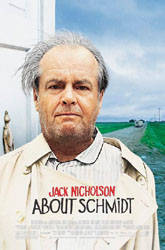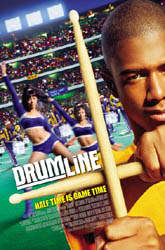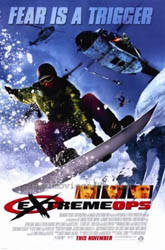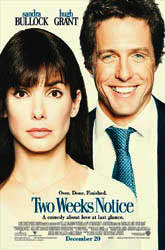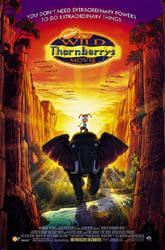 Director: Starring: Release: 27 Dec. 02
|
Chicago BY: DAVID PERRY Last year saw what could be considered the reintroduction of the movie musical in Baz Luhrmann's kitsch-galore Moulin Rouge. As one of the bigger proponents of that film -- despite scattershot editing and some overburdened numbers, it really was one of 2001's greatest visual treats -- it comes with an odd pang in my throat to declare a bit of one-upmanship on the part of Miramax and Rob Marshall. Their production of Chicago, the Broadway musical that has proven to be incredibly popular in its recent revival, has all the awe-inspiring attributes that could be found in Moulin Rouge (as well as many of that film's problems) and, most surprisingly, proves to be more productive for the genre than the Luhrmann film. What Chicago achieves is a return to the movie musical that could be found in theatres in the 1970s, as the genre went through its last hurrah. Most closely, it mimics Bob Fosse's Cabaret, the ultimate in cinematically toying with a stage production to the point of making the two media one. The gaudy flash and flourish that could be found in that film (as well as the stage work that Fosse spent most of his time on, including the original staging of Chicago) are splendidly recreated by Mitchell. The stages are still lit with enough electricity (both metaphorical and literal) to run a small town for a month and the numbers still have the enduring absurdity of vanguard art pieces. When the camera leaves a press conference to show the marionette qualities of the press, from the makeup that rouge their faces to the strings that move their pens, the effect is pure magic. When the film takes six women's tales of their murderous dallying in a number called the "Cell Block Tango" the work comes to a form that defies the imagination. The entire film (even in some of the more vocally pained numbers performed by Richard Gere) comes across with the chutzpah of a true entertainer. Every scene seems formed and fitted for the best cinematic impact, making it surprising that this is Mitchell's first foray into cinema. The director, who proved himself as the choreographer on many Broadway productions before co-directing the recent Cabaret revival with Sam Mendes, has attempted to find the Fosse in Walter Bobbie's 1996 revival of Chicago -- he delights in finding the razzle-dazzle of a film camera and an editing machine as much as he does getting the sexiness in his stage vixens. Though the sultriness is toned down for this widescreen realization of the play, the puerile joy in seeing a naked thigh and luscious lips seems to be part of the joy Mitchell's having in bringing this production to Middle America. But why does this merit the landmark title of "The Great Reviver of the Broadway Film Tradition?" All comes down to the fact that Chicago, more than Moulin Rouge, serves as an introduction of Broadway into the very Middle America that never sees it. Whether Chicago is accepted by viewers in Iowa and North Carolina is unknown, but the fact that this movie will be a chance for the masses to go to see Chicago is notable. While traveling groups have long been the chance for people in Knoxville to see Mendes and Mitchell's Cabaret, these troupes never have the appeal that comes with the real Broadway casts (this is not to say they are any less talented -- I would happily make the case that the touring Allison Spratt was a better Sally Bowles than Broadway's Brooke Shields). Like the 'real deal,' the film Chicago comes with the recognizable performers who can headline a Broadway production but who would never venture from Boise to Augusta in their roles. Stories of Catherine Zeta-Jones being a prima donna make it doubtful that the actress, who plays prima donna Velma Kelly in this production, would ever worry with taking the show outside of New York, if she'd even take the time to play the role there. The film version of Chicago, complete with
Zeta-Jones, Renée Zellweger, Richard Gere, John C. Reilly, Queen Latifah, and Taye Diggs
in the cast, has the marquee value of the Broadway musical with the transportability of a
tour. Even if the live show isn't there, the showmanship is, and the very draw that brings
those not interested in the culture of Broadway musicals -- namely the celebrities -- is
now part of the package. Chicago may do horribly in Middle America, but one can
see the merits of the production at least being accessible to the 'Red State' masses. |
|
| ©2003, David Perry, Cinema-Scene.com, 3 January 2003 | ||

